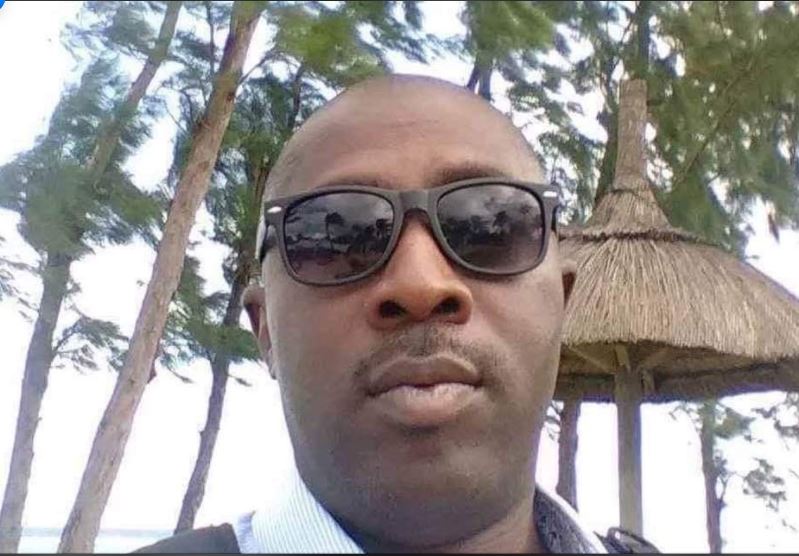I have never experienced a war. Not first-hand. I have seen wars on television. Blurry images of smoke, blood and people running. But because they are not close, you do not feel the weight the way you should. You do not smell the gunpowder, hear the screams, or taste the terror. However, that does not mean you think wars are carnivals. They are not. From what I have seen and heard, they are anything but. And when I say “heard,” I do not mean stories from people who were toddlers during the Nigerian Civil War. I mean accounts from those who lived through hell with their eyes open.
In 1998, I met an 18-year old Liberian named Alloysius. We met at the house of Afo Gambari, whom I visited often. It was during the June 12 agitation, when the socio-political temperature in Nigeria was near combustion. In the Southwest, people were clamouring for war. Loud, angry voices were saying it was the only way to reclaim dignity. From the North, people like one Kontagora, who ran the hate-filled Hotline Magazine, were responding with equal venom.
Amid this madness, young Alloysius told me one day that Nigerians do not know what war is and it was why they wish for it.
He told me his story, which I doubt he dramatised or told to elicit pity. He simply recounted the facts, as someone who had lived through a horror so deep it no longer needed embellishment. When war broke out in Liberia, he was trapped at home with his grandmother. The rest of his family had fled, possibly to their deaths. He did not know. Bombs rained. Bullets shattered windows and nerves. One morning, a piece of flying shrapnel tore through his grandmother. She lay bleeding for three days. He could not step outside for help. No one could come in. And on the third day, she died. In agony. In silence. Beside him. She must have been an ox to live for an additional three days.
I think about Alloysius whenever I hear people glorifying war as if it is some noble cleansing ritual. It is not. It is the savage theatre of pain. You do not romanticise war if you have watched someone you love bleed to death while you sit beside them, castrated by fear.
That story, nearly three decades later, still haunts me. Perhaps it is why I recoil whenever I hear people thirsting for war, certain that it will cleanse Nigeria of its many sins.
In a way, that same helplessness visited me again recently. Not through bombs, but through water. I have been watching the footage of the Texas floods. Rivers reclaiming roads, water rising to roof levels, a whole house torn off its foundation and swept away like it weighed nothing. Nature, unchained. No mercy. No warning. And I imagine the people inside, clutching family photos, screaming into the void as everything they own is swallowed. I do not need to be there to know it must feel like drowning before the water even touches them.
READ ALSO: Sanwo-Olu applauds LASU for topping list of sought-after institutions
I read about Christian camp where girls were washed away in the flood. Young lives, full of promise, swept into oblivion. They must have prayed. I have no doubt they prayed in the belief that they would be saved. The prayers got swept away by the flood. What of the people in Benue, Borno, those facing the horrors of Bello Turji and his franchisees?
I think about Alloysius whenever I hear people glorifying war as if it is some noble cleansing ritual. It is not. It is the savage theatre of pain.
I am not divine. But I know that if I had the power to help a drowning child, I would not need to be begged. I would not stand by, arms folded, waiting to be appeased. I would just save. Because that is what should come naturally to any person who is not empathy-challenged.
And that, perhaps, is where my crisis begins, as I stated a few days ago. Why do these things happen? Why, in spite of unending supplications, including at nighttime, do we still have wars and Biblical-scale tragedies like these floods in Texas, in Jebba, in every corner of the earth? Why does a world with so much worship still bleed so frequently?
I have been asking these questions for years. Not in rebellion. Not with arrogance. Just in aching bewilderment. The answers I have received about sin, about divine timing, about mysterious ways clash violently with what was sold to me as a child.
Would a well-adjusted father wait for his starving children to beg for days before feeding them when food is right there at home? Would a man with a heart allow his child to die of cancer when he could heal her instantly simply because no one fasted long enough?
I do not think so. I do not think love behaves that way. And so I continue to wonder. Not to be clever. Not to be difficult. But because I ache for understanding in a world where war kills grandmothers beside boys, where water devours praying girls, where, despite praying five times daily, parts of the Northeast and Northwest are suburbs of hell and where faith often finds no echo in the heavens.














